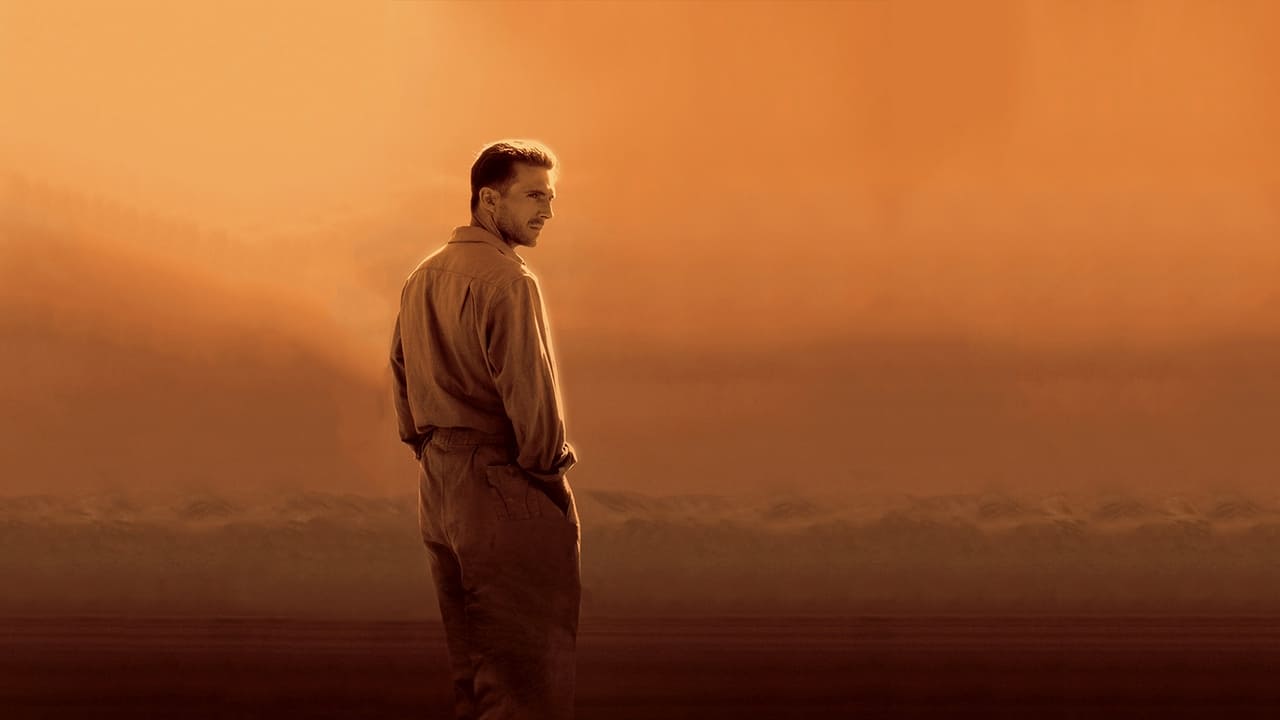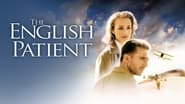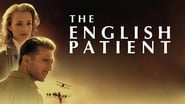martin-intercultural
I watched this film 20+ years after its original release. I did have some apprehensions - e.g. I thought it was "about the war"; and I knew for a fact it was very long.
Overall, it has aged well. To my relief, the plot is not so much about the war, but rather about civilian people swept up in the war.
Was the movie too long? It was. Not necessarily boring or dragged out sort of long, mind you. But I do think the tale could have been told just as powerfully in 90 minutes as it was in 162: The man with no face - use him to frame the story; lose the rest. Punjabi guy searching for landmines and/or washing his hair? I am all for a good interracial romp, onscreen and off, but really -- what did he add to the story? Cut. The Willem Dafoe character? Cut.
Lastly, and not to be a complete heretic: I love French cinema, and I can see how the part-Slavic La Binoche may have been a revelation to 90s US audiences, what with her Deneuve-esque power of projection coupled with a Bette Davis-style ability to "do nothing" in the face of great turmoil. Personally I found her role in this film to be one of a glorified narrator, whose presence could have been confined to under ten minutes. And not only that. In truth, some of her zany but wholesome antics, midway through, set in the ruins of the bombed-out cloister, actually brought to mind the words "Nokia. Connecting People". Sorry; they did.
Ultimately, all of the above contributes little to, and greatly pales in comparison with, the main story, acted out solidly by Ralph Fiennes and rivetingly, refreshingly yet timelessly by Kristin Scott Thomas. This is where the wow factor is; we didn't need the distractions which only served to bloat this saga to nearly three hours in length.
videorama-759-859391
People have made jokes about this film, like me. I saw it for the first time last night, in it's entirety. This near two three quarter hour movie, is one you become more engrossed in, the longer you watch. One reason, is to find the catalyst, responsible for a plane that goes down, where survivor Fiennes (yeah, the reputable guy on airlines) a lone author who becomes involved in a fatal affair, that claims beauty, Kristin Scott Thomas, never looking sexier, here. He's working with an archaeologist team, from what I can see, in the wide spanning desert of Cairo, not a place you want to brake down in, Summer or fall, where it's headed by Firth, Kristin Scott's Thomas's husband. The fatal affair intensifies, as we go back and forth with a bed ridden, skinless, Fiennes who has practically lost his face, and other features, burnt beyond recognition (think the sloth victim in Se7en) where he's nursed by army sister, (Binoche, a wonderful actress) who has her eyes on someone else. She plays a quite damned, if a little reserved nurse, whose time and dedication to her patients, where I'm really talking Fiennes here, is much admired. Willem Dafoe plays a bit of a shadowy character, out for revenge against Fiennes, where I could piece the whole following scenario, as experiencing this love triangle in other films, but there's a little bit more to it, which I liked, Dafoe's reasons for his black woolen mitts. Here's a great film, with great actors and characters, especially the ambiguous one of Fiennes, which should be viewed, by those who haven't seen it, even 20 years after it's release. It's ending is sad and memorable, if bleak too, especially if you consider Fienne's fate. Great film, that will stay with you, after seeing it.
Filipe Neto
"The English Patient" has long been transformed into one of the most classic films of romantic cinema, but it seems that the public has had little appreciation or patience for romantic movies, particularly if they are very long and slow. Based on a novel by Michael Ondaatje (which I have), its located in Italy at the end of World War II, telling the story of a military nurse being in a ruined house to assist an aviator who was terribly injured in a plane crash. So, this movie was intended for a public that wants to follow the story, savor all moments, follow the emotions of the characters. The script makes a good adaptation of the book. Scenarios and costumes have been thought through to detail and the period elements have been well recreated and are historically suitable. Visually, the film is excellent: great cinematography, with Italian and North African landscapes dazzling the audience. Ralph Fiennes was excellent in the lead role, achieving one of the most remarkable works of his career. Juliette Binoche was not as surprising as him, but she was well in her role. To be fair, the only problem in this film is the overly slow pace, making it overly sentimental in some scenes. I understand the idea and the intention behind, but everything has its limits and even honey can make you sick.
ElMaruecan82
Adapted from Michael Ondaatje's novel, Anthony Minghella's "English Patient" belongs to a Hollywood tradition of war-epics sweeping several Oscars, including the so "year-defining" Best Picture, and condemned to inspire such questions as: why did this film win the Best picture over "Fargo" or "Jerry Maguire"? Seriously, the only question that deserves to emerge is: does it matter?This is a film that is as much about War as say, "Jerry Maguire" is about sports, war is incidental to the people's lives but their lives and their relationships are still the real thing. Remember that line from "Casablanca": "it doesn't take much to see that the problems of three little people don't amount to a hill of beans in this crazy world." All the greatest war movies have contributed to discredit good old Rick; he has a point that on the big scale of war, the global outcome is what really matters but seriously, shouldn't we weep for the people who die on the screen because worse things happen off-screen? People die at war, it's the very essence of war, and if their sacrifice or death allows a few victories on the short term, well, we find the strength to accept the tragedies, but all the acceptance in the world can affect the emotional resonance one's death has on us.Indeed, what is cinema if not a medium intended to make us care for what goes on, and primarily on the screen? "Schindler's List" is incredibly sad because of the innocent lives killed over the course of the Nazi's persecutions and executions, but the story is told in such a way that we're also glad for the survivors who, with the help of Schindler, managed to go through the hellish war. Inversely, in "Saving Private Ryan", while we're supposed to cheer for his survival, we can't get quite over the loss of all the soldiers who went looking for him. In war films, we care for people not for wars, if anything, wars teach about humanity more than any other genre and "The English Patient" is no exception. One of the scene that haunted me the most was during a celebration of peace, everyone was chanting, drinking, dancing and cheering, glad to be finally back home and move forward, and then an explosion pooped the party the worst way. One of the officers hanged the British flag on a booby trap and died instantly. Now, this death had upset me more than any other one and the man wasn't even one of the main characters, but I found his death incredibly sad because it happened 'after' the war, as if the bombs should have been magically defused by the power of peace, as if it happened at a moment where no one was supposed to die anymore. It's the unpredictability of death that made it harder to accept, because all through the film, our minds were set to accept people dying. This one, by catching me off guard, revealed to me the essence of war: it makes death more acceptable.But the power of love is that it can't make death acceptable whether in war or peace time. And in a way, "The English Patient" is about deaths that shouldn't have happened if it wasn't for that fateful global conflict. Many people populate the film, and they're never identified by their backgrounds but by the people they love in return, the people they care or cared for, the ones they befriended or been married to. The film is made of two intersected stories, it's about a mysterious aviator (Ralph Fiennes) whose plane has burnt during a secret mission, he is taken care in Italy by a Canadian nurse, Hana, played by Juliette Binoche, who uses a villa as an improvised little hospital. Several men join her, a Sikh bomb expert played by Naveen Andrews and a mysterious man (Willem Dafoe) who seems to have a personal record to settled with the 'English' patient. Their interactions, flashbacks provide enough to make us want more.The main flashback though is told by the patient, from a time where he was a handsome Hungarian archaeologist, falling in loves with Katharine (Kristin Scott Thomas) the wife of his friend (Colin Firth). This is not a movie that romanticizes infidelity, their bonding is as a natural and inevitable process as war or a sandstorm, some things you just can't fight back and that seem as efficient in putting people together as separating them. The nurse Hana is also an illustration for this need of love, this is not the Florence Nightingale syndrome, but a need to find someone who can give as much as she gives, and if this person doesn't die in war, that would be enough. Binoche is such a naturally delicate and lovable actress, such a sweet and kind person that if someone like her ever lost the capability to love because of death, the tragedy would be worse than any death.But that's the secret of "The English Patient", by inter-crossing these parallel love and friendship stories, people put their failures into perspective. Even in wars, people don't die completely, their body perish but not their memory, it is a very fitting coincidence that the pre-war period involves map-making, because maps are built on pre-existing territories, you can put any names on them, that doesn't make them exist more. So is love, the memory transcend the actual relationship, it exists as long as you live it, talk about it and let it exist through the memory of other people who'd outlive you. In the film, a solider wants to talk to a man from his town before going, that's what war is about, trying not to completely die. And despite all the deaths that punctuate the story, at the end, Hana lets a beautiful smile illuminate her face, and it's all in the final revelation about the English Patient.



 AD
AD







